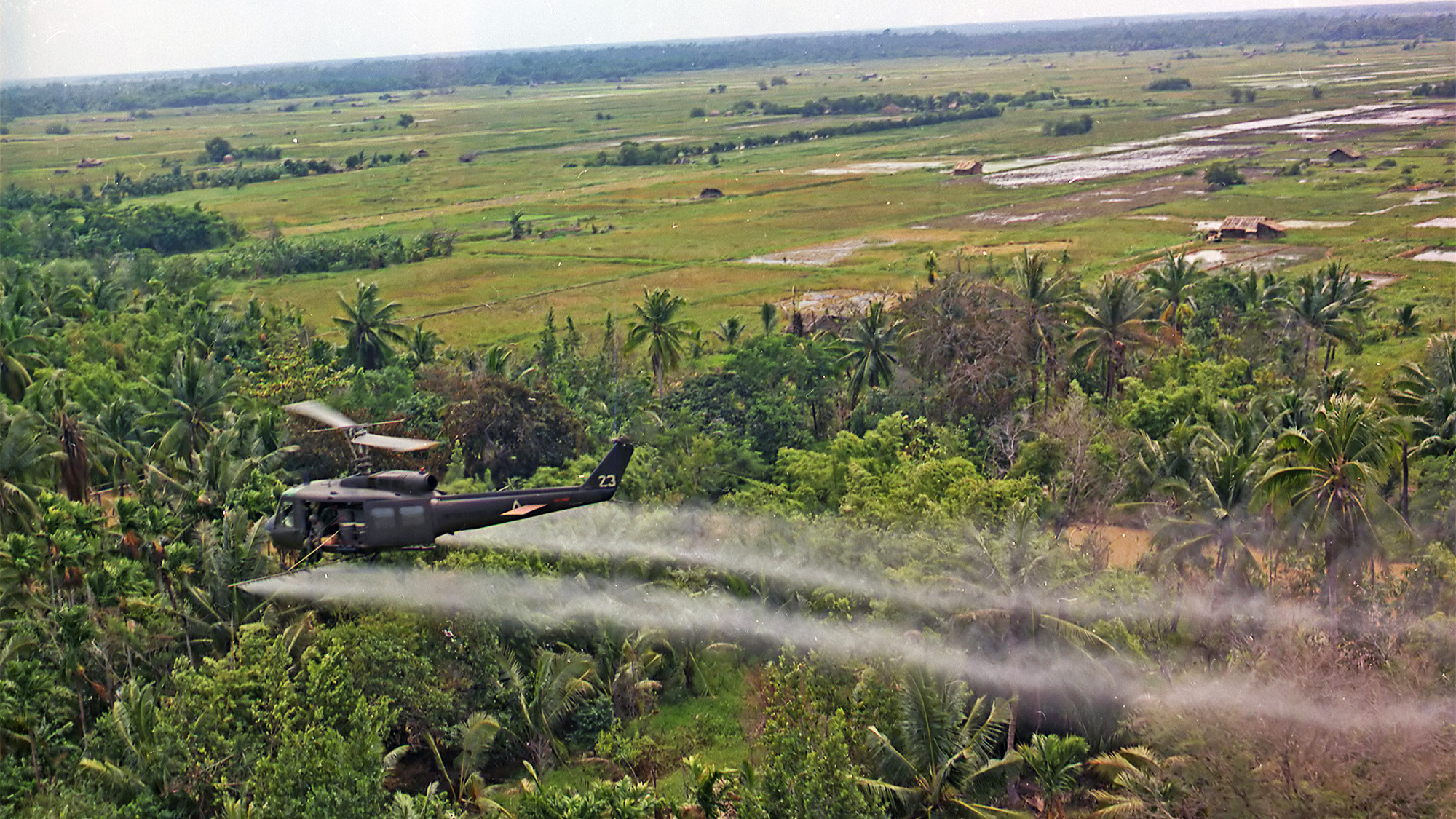Veterans Exposed to Agent Orange May Be at Increased Risk of Developing Progressive Blood Cancers

Posted in News Release | Tagged cancer, cancer research, hematology, leukemia, myeloproliferative neoplasms, veteran's health
Media Contact
Karen Teber
km463@georgetown.edu
WASHINGTON (June 2, 2023) — Research conducted at Georgetown University’s Lombardi Comprehensive Cancer Center and the Washington DC VA Medical Center on a database of veterans exposed to Agent Orange found an association for an increased risk of developing myeloproliferative neoplasms (MPNs), which are acquired stem cell disorders that can lead to overproduction of mature blood cells complicated by an increased risk of blood clots in arteries and veins. When MPNs progress, they can become deadly leukemias.
The findings will be presented at the American Society of Clinical Oncology 2023 annual meeting in Chicago in June.
Agent Orange is an herbicide that was utilized by the United States military in Korea and Vietnam to clear foliage during combat. It has been associated with sarcomas and B-cell lymphomas, but not MPNs or leukemias to date.
“MPNs are associated with serious cardiovascular events, and people with this disease have decreased overall survival chances,” says Andrew Tiu, MD, a second-year hematology/oncology fellow with MedStar Georgetown University Hospital who conducts research at Georgetown University’s Lombardi Comprehensive Cancer Center and is the lead author of this finding. “But until now, we haven’t been able to fully ascertain whether Agent Orange exposure truly leads to the development of myeloproliferative neoplasms, which is why we’ve undertaken what is the biggest population-based study to date to try to answer this question.”
To explore associations between Agent Orange and MPNs in addition to blood clots, bleeding, and a number of cardiovascular factors, the researchers utilized the Veterans Affairs Informatics and Computing Infrastructure (VINCI) database and examined records of 93,269 MPN patients among 12,352,664 veterans over 17 years. The researchers used veterans from the state of Illinois as a control population, since Illinois is highly representative of the United States, according to the U.S. Census Bureau.
Significant findings from the study include:
- The odds of Agent Orange exposure among MPNs are 1.63 times greater than the odds of exposure among controls.
- When comparing people with MPNs vs. age-, gender-, and race-matched controls, there was more clotting in the arteries (37% vs. 18.5%), more clotting in the veins (14.8% vs. 5.2%) and more bleeding events (39.1% vs. 13.5%), respectively.
- People with MPNs had more hypertension (75.5% vs. 43.2%), diabetes (31.2% vs. 19%), and more heart failure (26.1% vs. 11%) than age-, gender, and race-matched controls, respectively.
- The odds of Agent Orange exposure among matched controls with arterial clots are 1.38 times greater than the odds of exposure among controls without arterial clots.
- The odds of Agent Orange exposure among MPNs with arterial clots are 1.49 times greater than the odds of exposure among MPNs without arterial clots.
Because their findings only point to possible associations and not causes, Tiu notes that the researchers will need to dive more deeply into the biology of the disease. Specifically, they want to look at JAK2 mutations, which are one of the three driver mutations of MPNs (the other two being MPL and CALR mutations) that can cause uncontrolled proliferation of stem cells. JAK2 has also been associated with an increased risk of clotting.
“There are several associations between Agent Orange and health disorders that are not well understood, and we hope our work helps uncover a few of these,” says Tiu. “We are proud of the fact that our work was selected for a 2023 Conquer Cancer Merit Award and we’ll be using those funds to further our research efforts.”
In addition to Tiu, authors include Zoe McKinnell, Nandan Srinivasa and Zoe Shancer at George Washington University Hospital; Shanshan Liu and Guoqing Diao at Milken Institute School of Public Health of George Washington University; and Puneet Gill, Martha Antonio, Ramesh Subrahmanyam, Maneesh Rajiv Jain at the Washington DC VA Medical Center. The scientists declare no outside research funding for this study and no conflicts of interest.
